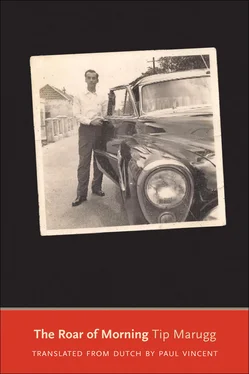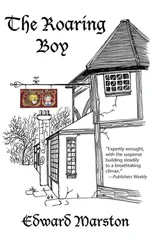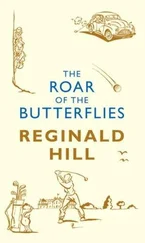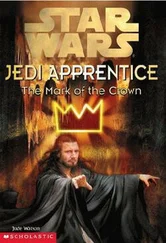And I see a Caribbean island with big hotels and white beaches newly replenished with shining sand. In a little house an old woman prays to her favourite saint for the safety of her son. He has been in Europe for a year; he likes it fine and is earning good money. It’s true he hasn’t sent any home, but she is happy with his cheerful letters, which she reads ten times over. But Europe is a very big island where rich people live. They have gold mines and apartheid and nuclear rockets they have borrowed from America and will fire at each other when they declare war. She has read all that with her own eyes in the morning paper. The gold mines have long, dark tunnels that reach the centre of the earth. But the Europeans don’t go down themselves, they send in black West Indians and Turks to extract the gold. From time to time, one of the tunnels caves in and buries many workers. That is why she is praying for her son. Her prayer is not heard. His body is fished out of a canal by the police and press reports say he was murdered by drug dealers. The story appears under splash headlines in her morning paper. The old woman never knew that the Pope had declared many years earlier that Santa Filomena was not a true saint.
And I see my garden gate swing open and Eugenio, once a schoolteacher and now the village idiot, enters. As he comes into the light I can see that he is not wearing his customary hat or the boots in which he keeps newspaper cuttings. His trousers are rolled up to just below the knee and I notice that he has six toes on his left foot. That is to say, above his little toe there is an appendage that looks very like a miniature toe. When he has come very close, he startles me by suddenly tumbling forward and standing on his head. With his head and hands on the ground and his legs flailing to keep his balance, he starts bellowing in the annoying, singsong way of children reciting a prayer or a poem: “A person could go old and grey with all that waiting! Who was it promised a land of milk and honey? That the blind would see? The deaf hear? A thousand-year land of plenty? Meanwhile, take pity on the rich — millionaires can be unhappy too — comfort the strong — tough guys also sometimes lose — forget the Third World — send consolation to the capitalists — and please don’t forget the white folks because of all those blacks. Ignore the sick, the prisoners, the lonely — award a title to a successful prostitute — increase the robber’s haul — give the terrorists a hand — democrats can stand on their own feet, so let’s do something for a fascist government. The conservationists, the disabled, the elderly and the homosexuals get quite enough attention as it is, so let’s give healthy people more vitality — turn all the water into wine again, drunks are the salt of the earth! All those kids who masturbate on the sly, give them exciting fantasies — and while we’re talking about children, let all the pompous schoolmasters suffocate in their sleep — or if that’s not possible, then let the Holy Ghost reveal the exam questions in advance. Let a notary win the jackpot in the lottery — bless all royal houses — give every prince a beautiful princess — give a bonus to every rapist — encourage the sadomasochists and the Christian Socialists too — let landslides and volcanic eruptions happen only in poor, densely populated regions — no more trains full of suntanned tourists must be derailed. Anoint those in authority — be particularly munificent to dictators, slave owners and the CIA — give bigger profits to drug dealers and more oil to the Arabs — give us a pope who is thirty, as well as thirty pieces of silver for everyone — strengthen the arm of the executioner — give the pyromaniac a steady hand — and don’t forget all the majorities. Organise a gigantic festival where smugglers and alcoholics, usurers and politicians, chain-smokers and tax dodgers, bank managers and atheists, environmental polluters and pornographers, plane hijackers and book reviewers, pickpockets and child molesters can win cups and gold medals!”
And I see my garden gate swing open a second time, and now it is the black trade union leader coming towards me. He used to be pugnacious and full of fire, but now he has grown older and more circumspect. He invites me to accompany him. We go to the city and enter a large jeweller’s shop. There is thick wall-to-wall carpeting that muffles our footsteps; all you can hear is the hubbub of customers and sales assistants. Silver, gold and diamonds gleam at us from all sides. We see showcases piled high with Swiss watches and others with huge, glistening diamond earrings, the kind that hang from the ears of Imelda Marcos, and glittering bracelets that might jingle on the skinny arms of Michèle Duvalier. In the wall cases we see exquisite porcelain figurines depicting tender scenes of little lambs and flowers, frail wenches and tubercular young men. Amid this serene beauty, the trade union leader gives me a dig in the ribs and winks. In his hoarse voice he shouts, “Ladies and gentlemen, your attention please.” Then he lets out a ferocious and deafening fart that makes the glass of the showcases shake and the little carillon on the shop front tinkle out of tune. The powdered and perfumed tourists, many fitted with pacemakers, rush outside and scream hysterically for taxis to take them to the airport, to the safety of New York and the decorum of Boston.
And I see a boy and his uncle going for a walk in the woods. “Nothing better than a day in God’s fresh air to give you a second wind and put fresh heart into you,” says the uncle. The woods are dense and silent.
“Won’t we get lost?” asks the boy.
“God is our compass,” is the answer. The boy is tired because he has to carry a basket full of oranges, large, hard biscuits and religious magazines. “Can’t we rest a bit?”
“That’s a good idea. Come on, let’s sit down by that big tree trunk.”
The uncle takes the basket and puts his arm round the boy’s shoulders, but with a quick movement the boy ducks underneath the arm and sits down on a boulder some way away. It is no longer silent in the woods. The boy hears the grating sound of wheelbarrows being pushed up and down, and further on there is the sound of a mill crushing stones. The trunks of the giant trees begin to expand sideways; they grow wider and wider until they touch each other and seal off a whole section of the woods from the rest of the world. The sound of the squeaking wheels, the mill and the pickaxes striking the ground grows louder. Next to him on the boulder sits a man staring patiently straight ahead, always at the same spot. He is as thin as a rake. The boy has never seen such a skinny adult before, but what fascinates him most are the large grey eyes, as expressionless as those of a blind man. The boy has the strange, mystifying sensation that the man is not in fact staring straight ahead, but that his gaze is focused backwards and inwards. “Hello, sir.” “Hello, boy.” The voice is flat and toneless, and as the man utters the two words he makes a gesture with his bony left hand as if ordering the din around him to stop. The boy thinks that he is perhaps the only person in the whole world who can hear the man, and he wants to get up and bring him an orange from his uncle’s basket. But he decides not to because he will be hurt if the man doesn’t accept the fruit. The man lights a cigarette, inhaling deeply and without pleasure. He wears prison clothes, the blue-and-white-striped overall open from neck to navel exposing his rib cage. The two rows of thin ribs are very pronounced and the indentations between them are dark in colour; there is a deep groove from his throat to just above his navel. “Your body is like Christ’s on the cross,” says the boy, but immediately regrets saying it. The man’s face is inscrutable. Is he annoyed or amused? I’d better say something else quickly, thinks the boy — but what am I supposed to talk about to someone who says nothing himself and perhaps can’t even hear what I’m saying? For all I know, he may be deaf. Deaf and blind, and so full of fear and uncertainty and terribly lonely. “I sometimes feel unhappy too,” he could have said to the man to comfort him, but what he actually says is, “There’s my perfect uncle. Do you see him over there by that big tree trunk? According to him, everything is sinful or leads to sin.” The boy is ashamed of having said that; the man probably found his words just as funny as his previous remark about his Christ-like body. “I want to change as quickly as possible and become a man with broad shoulders and strong arms and legs, and I shall grow a moustache.” The man has a cigarette end in his mouth and his thin lips move only when he blows out the smoke. Then the boy suddenly imagines that he hears words, spoken with the gasping voice of someone with a lung disease. The boy listens attentively, but cannot quite grasp the meaning of the words. “Happy expectations of the future and fond memories of the past are both treacherous things. We are all criminals: half of us are already in prison uniform, while the acolytes are still in white cassocks. One man does penance for his sins, another still carries his misdeeds covertly around with him. We don’t know what’s in store for us and later we will never know what happened to us. I too was once ten years old.” The man takes the cigarette end, no more than half an inch long, out of his mouth, pulls a new cigarette out of his breast pocket and lights it from the previous one. The boy observes him from the side. The man looks weak and emaciated, but at the same time wiry and tough; he has something about him of a wild animal that has just mauled and eaten a weaker creature. The boy feels that he must say something: “I wish you were my uncle.” He is shocked by his own words, not because of what he said, but because he addressed the man so familiarly — this man his uncle called a thug whose soul was doomed to burn in hellfire for all eternity.
Читать дальше












